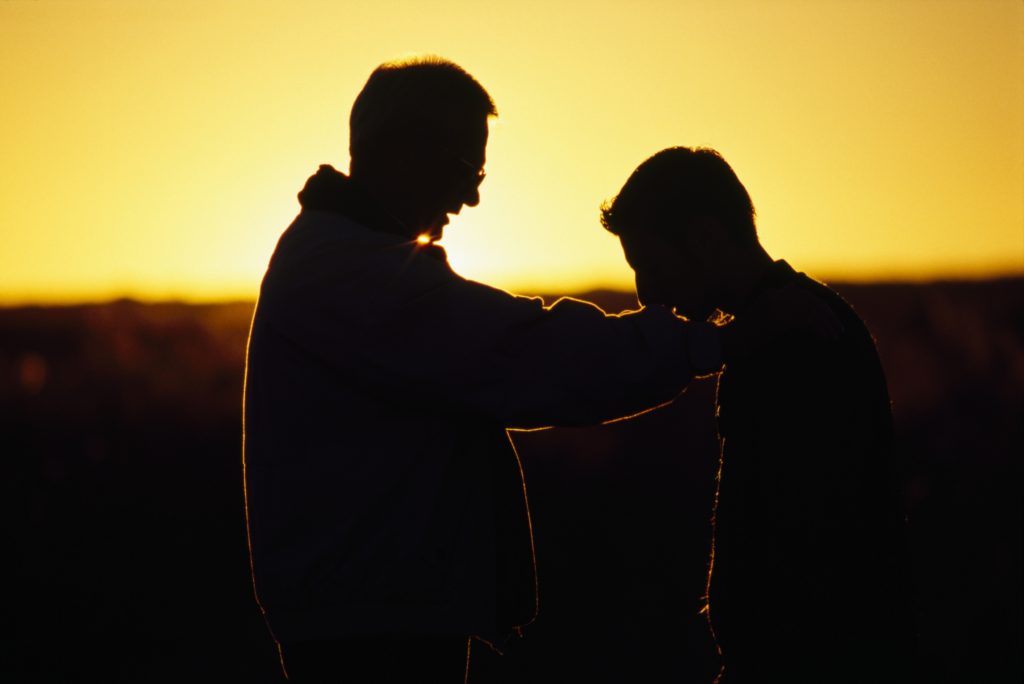It’s been said that addiction doesn’t just impact the individual using drugs or alcohol, but rather the entire family system. Addiction progressively places major stressors on the family, impacts the stability of the home, segregates the family unity, destroys mental and physical health, often creates family financial hardships, and many times – causes parents, children, siblings, and other family members – to reach the breaking point. When addiction is present within a family, normal routines do not exist; yet worry and stress seem to remain constants. Spoken words don’t always match their actions or the truth. Manipulation, lies, and denial prey upon family trust. Little things blow up into major arguments, and major issues get swept under the rug. Addiction is a disease the affects the entire family, and without proper help – it can disrupt family life, causing pain that can endure a lifetime.
So what can a hurting family do to help an addicted loved one?
Whether a loved one is struggling with addiction to alcohol, benzos, or heroin – there are a few general guidelines that are appropriate for any type of addiction. Each of the suggestions below begin with addressing the underlying issues of the addiction.
-
Identify Why Your Loved One Refuses Help.
So your loved one is in active addiction, but wants no part of discussing help or addiction treatment. How do you proceed? Instead of bringing up your reasoning as to why he or she does need help – ask your loved one why he or she believes help isn’t necessary. At first, you’ll likely to get a long, extensive list as to why he or she can’t go to addiction rehab or refuses the idea that he or she needs help. Encourage them to point to two or three main reasons: afraid of leaving their kids? Fear of losing their job? Note that many people who refuse help cite fear as a reason to skip treatment. It may take several attempts to narrow the list down to two or three specific points, but exercise patience in understanding why they don’t want help. When you determine those main reasons, write them down.
-
Address Those Two or Three Points of Refusal.
Once you are able to determine the two or three main reasons your loved one is avoiding addiction treatment, talk to an addiction professional or therapist about finding solutions to these problems. Coming up with solid, sensible solutions to the issues can ease a lot of anxiety and fear your loved one may be experiencing about admitting an addiction issue or getting treatment. If you’re able to address those issues, the more likely you are to calm those fears, and find solutions to getting your loved one the help he or she needs.
-
Discuss – Don’t Lecture.
Regardless of any addiction issues, lectures from family members often put people on the defensive. Instead of talking at your loved one in active addiction, talk to them. Explain the solutions to the two or three main problems. Be reasonable. While the solutions will not be simple and the road to recovery will be difficult at times, the consequences of not addressing them will cause him or her to suffer greatly. By opening up a conversation and remaining positive, your loved one will be less likely to remain resistant. Because addiction is a disease that typically requires professional help to to uncover the underlying causes, family relationships and issues are sometimes a factor in the destructive behavior. Instead of making your loved one feel hurt, scared or ashamed, continue to show your love, support and empathy.
-
Get an Expert Involved.
This process doesn’t fall solely on the shoulders of the family members. Reach out for help from an addiction professional or expert, even someone who is in recovery who can relate to your loved one. These professionals and experts are trained to use their skills and reasoning to talk to people in the same shoes your loved one finds him or herself in.
-
Be Involved in the Drug Rehab Treatment and Recovery Process.
Healing from alcoholism and drug addiction isn’t just the responsibility of the person who has been using or drinking. When a drug-addicted family member is able to get into treatment and on the road to addiction recovery, the entire family needs to take steps to get better, as well. Without family involvement and healing through counseling, therapy, or support groups – it can actually hinder your loved one’s progress. Offering support through your loved one’s healing process is essential. Once the your loved one has completed drug rehab, we recommend that your family continues to work with support programs through organizations like Al-Anon, Nar-anon, as well as family and individual counseling.
Families CAN help an addicted loved one. Often times in families dealing with active addiction, the focus of attention narrows itself to the person using drugs or alcohol. Instead of family members focusing on being the best they can be for their loved one, they focus on blaming the addicted person – so much so, that they lose sight of themselves. Realize that you can’t control your loved one’s addiction, but you can be the best person possible for him or her to turn to when they’re finally ready to take action against addiction.


